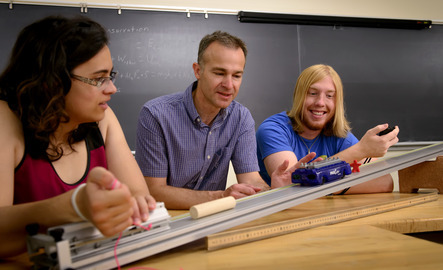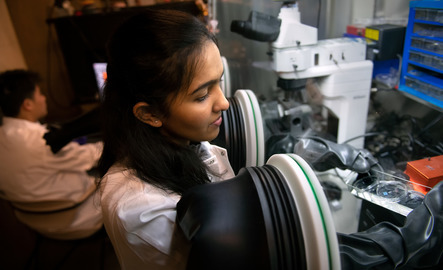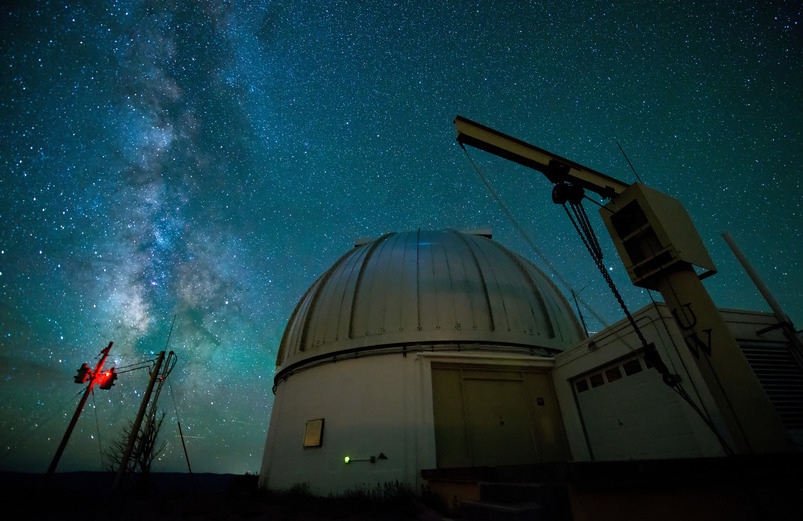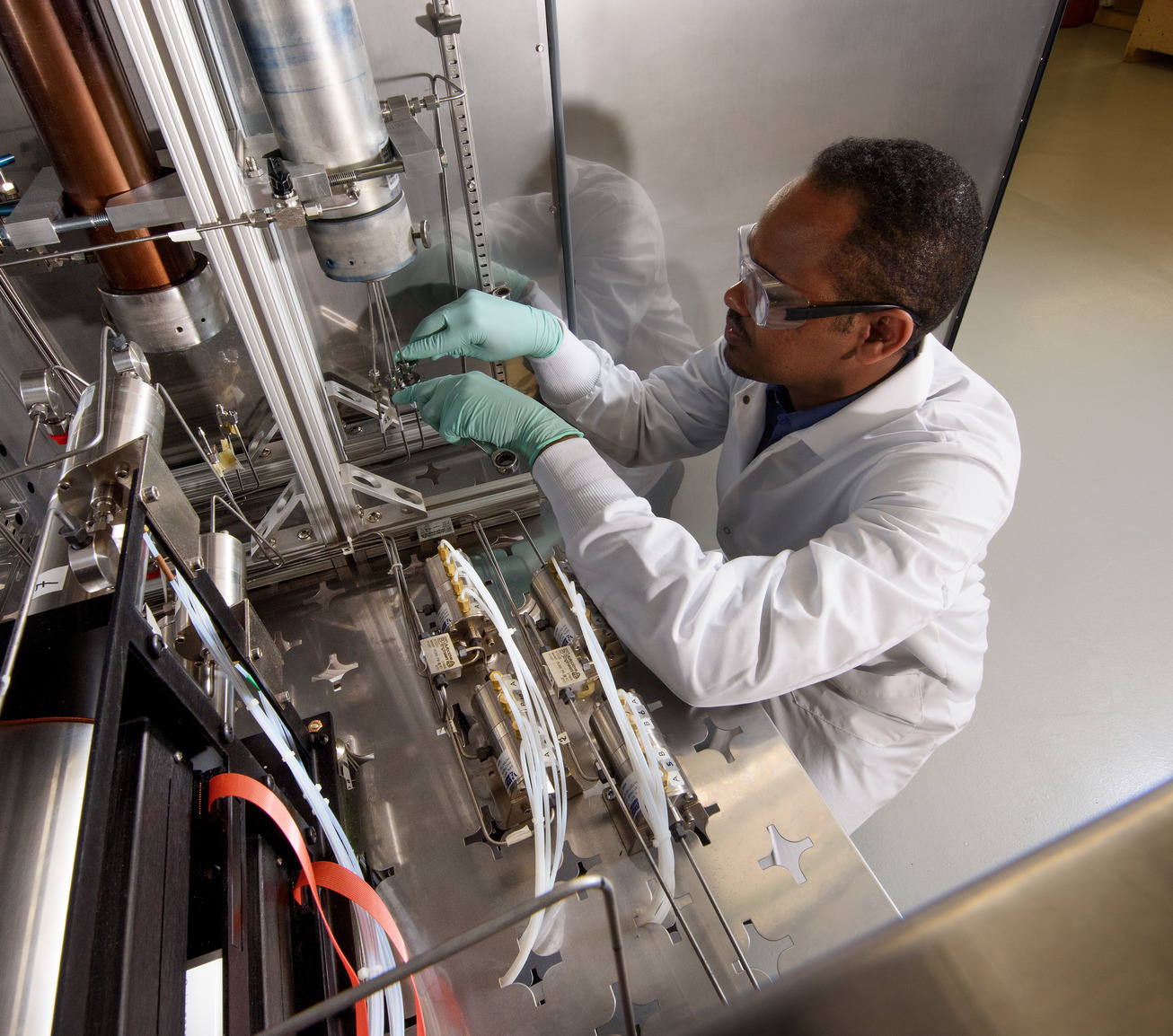What Is Our Physics Ph.D. Program All About?
Well-funded by federal agencies for their research, UW physics department faculty
are experts in a variety of areas, from planets that orbit distant stars and observational
cosmology to low-dimensional structures and quantum materials. Expect your graduate
education to include the study of foundational physics, advanced topics and the choice
of concentrations in astronomy or condensed matter physics.
And, because you are studying at Wyoming’s only doctoral degree-granting university,
where the state has poured its aspirations and resources, you will have access to
remarkable research facilities in physics, astronomy and the other sciences.
Graduates of our Ph.D. in physics program regularly go on to post-doctoral placements,
industry and government careers, as well as research and teaching positions at colleges
and universities.

One of the most exciting features of pursuing a Physics Ph.D. degree at the UW is that you have the flexibility to tailor your academic journey to your interests and career goals. With the option to specialize in either astronomy or physics, you can truly customize your degree to suit your passions and unique skillset. These tracks provide you with the chance to delve deeper into your preferred area of study and gain invaluable expertise that can help you stand out in a competitive job market. So whether you are fascinated by the mysteries of the universe or the fundamental laws of matter, the UW Physics Ph.D. program offers you the flexibility to explore your passions and pursue your dreams.

In the UW physics Ph.D. program, you'll have the great opportunity to complete a researched-based doctoral dissertation while working closely with UW faculty experts. Here are just a few recent dissertation titles:
- "Determining the Causes and Consequences of the [CII] Deficit in Local Galaxies"
- "Formation and Evolution of Stars and Star Clusters in the Milky Way"
- "Massive Binary Stars as a Probe of Massive Star Formation"
- "A Microscopic Understanding of Solar Cell Materials Using Scanning Tunneling Microscopy and Spectroscopy"

What Can You Do With a Ph.D. Degree in Physics?
The intense intellectual and research experiences you will receive as an astronomy and physics doctoral student will prepare you to make discoveries and contribute to the fields of physics and astronomy as a scholar, teacher and scientist. Graduates from the physics and astronomy Ph.D. program at UW become post-doctoral researchers, work in industry and government and take faculty jobs at colleges and universities.
These are just a few jobs held by UW Ph.D. graduates in astronomy and physics:
- Assistant Professor, Vanderbilt University
- Assistant Professor, Oklahoma State University
- Associate Professor, West Chester University
- Associate Research Professor, Pennsylvania State University
- Packaging R&D Engineer, Intel Corporation
- Professor, Rowan University
- Support Scientist and STScI Scientist, Space Telescope Science Institute
- Project Scientist For The Science Payload For The James Webb Space Telescope, NASA
- Staff Engineer, Seagate Technology
A Ph.D. in Physics opens the door to a wide range of advanced careers in academia, research and industry. Graduates often become university professors, research scientists or data analysts, while others work in sectors like aerospace, defense, energy, healthcare and technology. With expertise in problem-solving, modeling and complex systems, physicists also thrive in roles such as medical physicist, computational scientist, patent examiner or science policy advisor. Whether you're interested in groundbreaking research, high-tech innovation or shaping the next generation of scientists, a Ph.D. in physics offers the skills and flexibility to make a lasting impact.
The Milky Way spilling across the ceiling of Laramie’s night. People pushing the bounds of quantum materials and solar energy. Enviable observatories. Plus, a deep commitment to your development as a scientist. These are only a few reasons why people choose the Department of Physics at UW for their doctorates.
A Ph.D. in Physics takes anywhere from 4 to 7 years to complete. The exact duration depends on your research progress and whether you enter with a bachelor’s or master’s degree. The first 2 years focus on coursework and exams, followed by several years of original research, teaching and dissertation writing.
Alumni Spotlight: NASA Scientist, David Ciardi
David Ciardi, who earned his Ph.D. in Physics from the University of Wyoming in 1997, is the Chief Scientist at the NASA Exoplanet Science Institute at IPAC/Caltech. He received the prestigious NASA Exceptional Scientific Achievement Medal for his contributions to the Kepler space telescope mission and the study of Kepler-identified exoplanets. In recognition of his impact, an asteroid—26312 Ciardi—has been named in his honor.


